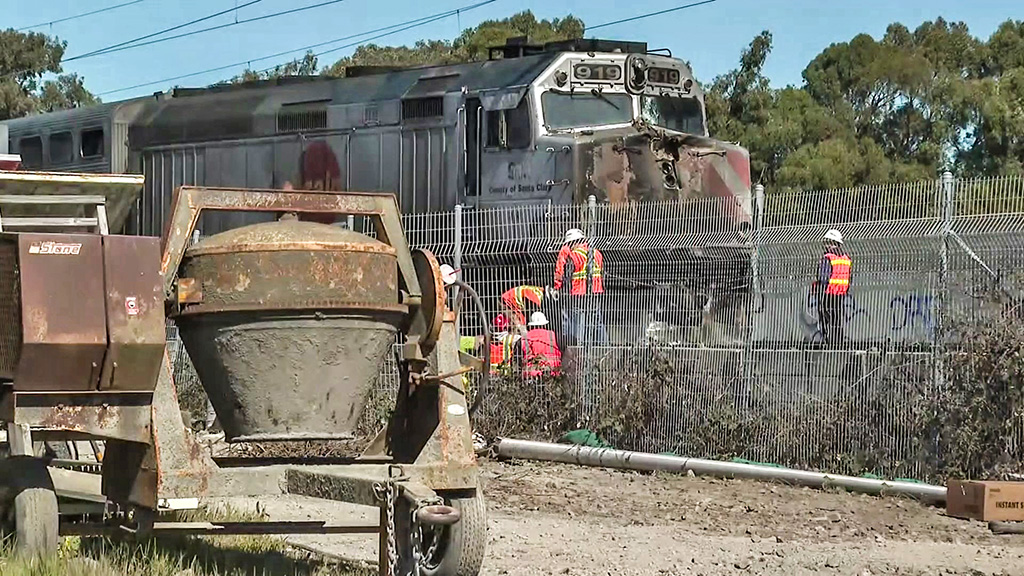San Francisco’s Russia-Linked ‘Startup Temple’ Again on Market

A defunct church in San Francisco that was bought with a $5 million investment by a Russian oligarch linked to President Vladimir Putin is back on the market after a foreclosure.
The property, currently listed by Colliers, includes both the historic Catholic shrine called Nuestra Señora de Guadalupe and an attached living space at 906-908 Broadway in the chic Russian Hill neighborhood.
While the listing describes an “extraordinary opportunity” for a buyer, there’s no mention of the property’s bizarre history — and it’s a sucker.
In 2016, venture capital firm GVA Capital bought the church for $7 million with the goal of converting the former place of worship into a startup incubator and tech venue called Startup Temple.
Of that, $5 million came from Suleyman Kerimov, one of Russia’s wealthiest businessmen and a member of the country’s upper house, The Standard found in a November 2022 investigation.
According to the European Union and previous reports by the International Consortium of Investigative Journalists, Kerimov is a close ally of Putin and has ties to a financial network believed to hold the Russian leader’s fortune.
In 2018, the US Treasury Department placed Kerimov on its sanctions list and later froze $1 billion of his assets in the United States, including a Delaware trust linked to the church purchase.
The Standard’s analysis of hundreds of internal memos, emails and court filings revealed for the first time the ownership structure of this trust and other companies in a number of Kerimov-affiliated companies.
Moving Kerimov’s money to the Bay Area required more than a dozen attorneys, accountants, investment managers, bankers, agents and other professionals, according to The Standard.
In May 2022, Russian oligarch Suleiman Kerimov’s $300 million yacht “Amadea” was seized by Fijian law enforcement agencies at the request of the United States. | United States Department of Justice
Strange business idea
The startup temple was the brainchild of Pavel Cherkashin, a Russian businessman based in the Bay Area.
Along with Magomed Musaev, a Russian venture capitalist and President of the Russian edition of Forbes magazine, Cherkashin founded GVA Capital to match Russian investors with early-stage US startups.
In all, GVA invested $28 million of Kerimov’s money in Bay Area businesses. The bulk of that — $20 million — went to Luminar Technologies, a company developing systems for self-driving cars.
Buying the defunct church may be Kerimov’s most unusual investment. In a January 2017 column in App Developer Magazine, Cherkashin likened startup culture to a “religious experience” and outlined his idea for a tech church.
This idea turned out to be more difficult to implement in practice. After launch, the startup temple hosted a series of tech-related events, including a TEDx talk, a rave, and an “Intercontinental Startup Battle.”
Ultimately, however, it struggled to turn a profit. By 2020, it was planned to host school dances and weddings in addition to technical events.
In 2020 the church was foreclosed on, Cherkashin told The Standard last year.
In March, Lightstone Capital acquired the property in a foreclosure sale. According to the San Francisco Business Times, Colliers is now looking to sell the company for around $7 million – essentially the amount GVA Capital paid for it.
The city’s problems worsen
The sanctioning of Kerimov and the demise of the startup temple was not the last time GVA Capital went public in the United States.
In May, Axios reported that Austin Russell, the 28-year-old American CEO of Luminar Technologies, was leading a bid to buy 82% of Forbes for $656 million.
According to Axios sources, Russell was brought into the deal by GVA Capital President Musaev. Despite serving as the face of the deal, Russell only provided $10 million of the money. The rest came from foreign investors.
The Church’s brief tenure as a temple to the Bay Area’s technology boom was more than a flash in the pan. It also had a clearly detrimental impact on a city that has long struggled with homelessness.
When GVA Capital offered $7 million to buy the church in 2016, Aaron Peskin, a board member whose district includes Russian Hill, wanted the city to lease the property and convert it into a homeless shelter .
“Without that huge cash injection, it would have been a navigation center around 2016,” Peskin told The Standard last year.

/cloudfront-us-east-1.images.arcpublishing.com/dmn/7AQKFP4SOFG7VIVA3YAFPNSAME.jpg)



